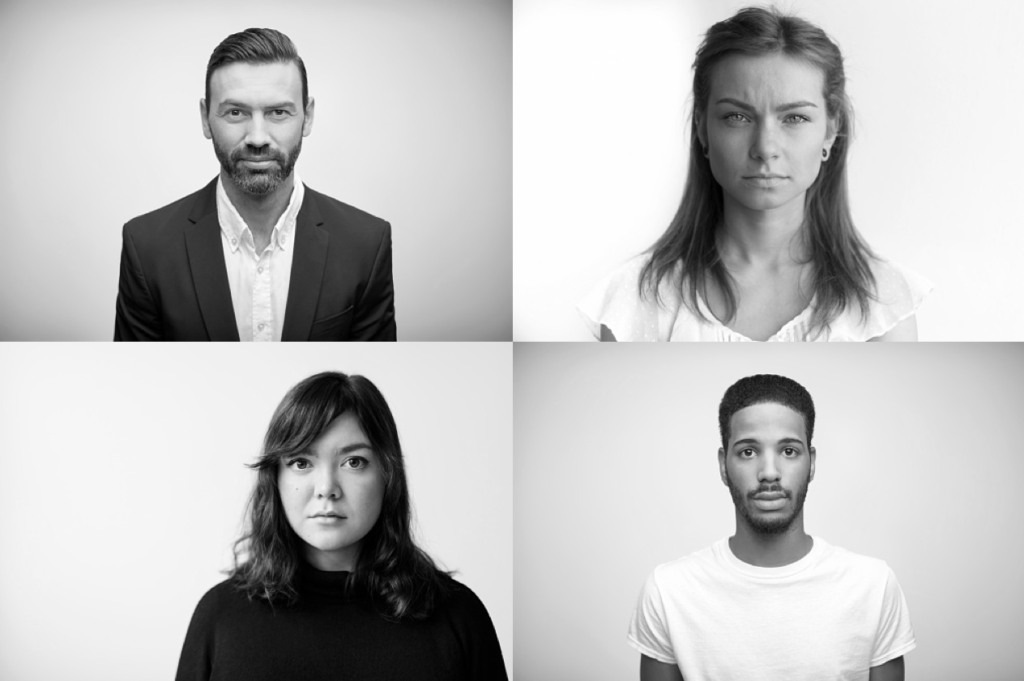
“I don’t see color.” “I treat everyone the same.” “All lives matter.” We’ve all heard these phrases; many of us have said one or more of them—probably with good intentions in mind. Today, in the first installment of our Unpacking Conversations that Matter feature series, I’ll be “unpacking” the harmful messages included in these sentiments and offering some suggestions for how to respond if you encounter them.
The common refrain, “I don’t see color,” inspired one of my all-time favorite articles from The Onion, which humorously highlights the many ways that this claim is plainly psychologically inaccurate—however much someone might aspire for it to be true. However, when people say, “I don’t see color,” chances are they are referring less to what they do or don’t “see” and more to their behavior, i.e. how they treat others according to racial differences.
So, what’s wrong with treating everyone the same?
Again, all the research shows that we probably aren’t. Due to normal psychological processes, in concert with socialization through family, education, media, and other institutions, it is virtually impossible to rid ourselves of biases entirely—including those based on race, gender, and other identities. Furthermore, while acting without the influence of bias is a worthy aspirational goal, one of the only effective ways to make progress on this front is actively working to recognize when our biases are coming up and training our brains to reconsider assumptions—by introducing alternate interpretations or acknowledging double standards we may hold. Unless someone has dedicated years, perhaps decades, to exploring and challenging their history of socialization, inner thoughts, assumptions, and biases, it is probably safe to assume that they have not yet achieved the goal of treating everyone “the same.”
So, one productive response to the claim “I treat everyone the same,” is to introduce psychological research about the reality of biases. “I understand why you would want to approach the world that way—and it’s a good goal in theory. Unfortunately, research has demonstrated that people naturally operate under the influence of biases, oftentimes without even realizing it. The best way to treat people fairly is actually to reflect on the biases that we hold and begin training our brains to overcome them.” Sharing a time that you recognized yourself acting in a biased manner can be a good way to normalize the influence of bias and model the reflection process necessary to recognize and challenge our biases.
Minimization risks missing important differences that humanize us and make us who we are. Click To TweetNext, it’s important to address why treating everyone the same, even in practice, may be misguided and harmful. The philosophy that dictates we are all essentially “the same” is a worldview or orientation called “Minimization” in Milton J. Bennet’s Developmental Model of Intercultural Sensitivity (DMIS). Emphasizing similarities across humanity can sometimes be helpful in challenging stereotypes or prejudices (and certainly has its time and place). However, when treated as gospel, this philosophy risks missing important differences that humanize us and make us who we are. As we often explain in our work at The Winters Group, it’s important to recognize the ways that “differences make a difference.”
It’s important to recognize the ways that “differences make a difference.” Click To TweetMinimization is predicated on the notion that acknowledging race, gender, ability, or other differences is a negative thing. Just because these dimensions of identity have historically been used to privilege some while disadvantaging and stigmatizing others does not mean that they themselves are negative. To the contrary, many people take pride in, and find community through, their association with their cultural groups and identities. It may be helpful to suggest to people operating from a place of minimization that to claim that we don’t “see” or consider people’s identities is to refuse to acknowledge and celebrate people’s whole selves.
Another reason minimizing rhetoric is harmful is that it erases inequities that objectively exist and that substantially impact people’s lives. Research abounds demonstrating that racism, sexism, and many other prejudices are alive and well in our world today. Suggestions that it is possible to operate without “seeing” differences may be considered a form of gaslighting—denying people’s genuine experiences of prejudice or privilege.
Additionally, at the end of the day, rushing to announce that we don’t see gender or that we treat everyone the same regardless of race means that we are less likely to treat people in an equitable manner. For example: imagine we are evaluating college applicants. If we do so with no attention to what opportunities they may or may not have had over the course of their lives, we are likely to choose those who attended the highest-rated schools, scored the best on standardized tests, and participated in the most extra-curriculars. Factors we may never consider include: the quality of teaching these students had throughout their lives, whether they had the financial means to pay for test preparation, and what privileges they may have had that allowed them to participate in extra-curricular activities rather than, say, working to support their families. In the end, given this lens, our decisions will in fact reinforce inequities rather than treat everyone “fairly.” Providing a tangible example like this of how minimization might support inequities rather than fairness can often challenge people to shift their perspective, particularly when fairness is their genuine goal.
At the end of the day, rushing to announce that we don’t see gender or that we treat everyone the same regardless of race means that we are less likely to treat people in an equitable manner. Click To TweetMinimization is also harmful because it privileges our personal value systems and worldviews over those of others. When we assume that everyone is the same we in effect assume that everyone is “like us.” This philosophy is exemplified by the “Golden Rule” that many of us were raised with: “Treat others as you would like to be treated.” We could come up with many situations that directly challenge this logic from personal to cultural: My partner loves to be invited out dancing on a Friday night, while such an invitation leaves me socially anxious and filled with introvert dread. In the U.S., it is usually a sign of respect and competence to maintain eye contact while speaking; in many cultures this is perceived as rude or aggressive. Instead, I present The Platinum Rule: Treat others as they would like to be treated. How do you know how someone would like to be treated? Educating yourself about their culture may be a good first step, but a simple solution is often available: ask them.
Finally, I’ll unpack one more, all-too-common minimizing statement that gets to several of the points I’ve addressed in this post: “All lives matter.” Offered in response to the #Blacklivesmatter movement, these three words which, on the surface, may seem unobjectionable, can be extremely hurtful. Certainly, outside of any cultural or sociopolitical context, many people could agree that everyone’s life is of value. But in reality, we always exist within a sociopolitical context. It is misguided to ignore the context in which we all live, as if those harmed by it can flip a switch and prevent that from being the case.
Numbers about racial disparities in traffic stops, police brutality, arrests, sentencing, and countless other contexts, don’t lie. Furthermore, no one expressing the sentiment that Black Lives Matter is arguing that other lives do not; remaining hung up on this rhetorical point is fruitless and harmful. When quoted in response to “Black Lives Matter,” a movement specifically formed in response to a systemic societal devaluing of a group of people’s lives, “All lives matter” diminishes very real suffering experienced by people of color, gaslighting their experience of oppression and distracting from life-and-death realities that desperately need attention.
Pointing out the flawed logic in insisting that “All Lives Matter” is as simple as using an analogy: are organizations fundraising to fight breast cancer suggesting that other cancers don’t matter? (Or, for those who don’t mind a bit of good-natured profanity, this example about saving the rainforests might resonate.)
We hope that unpacking these common minimizing statements and equipping you with some talking points to challenge them will further enable you to engage in Bold, Inclusive Conversations®. Stay tuned for much more “unpacking” to occur next week!




















Leigh-
I found your article interesting and helpful for me on my personal journey. Thank you for your fine work. I have a comment about your section on the Golden vs. Platinum rule. I found your explanation of the Golden Rule to be a strawman argument. The Golden Rule is about respect and kindness, not social norms of what people currently think of as polite. A person following the Golden Rule would be the kind of person who would observe and learn, or ask someone how they would want to be treated, because that is what you would like others to do for you. Which is pretty much the Platinum Rule you mentioned. I think you might be alienating those of good character and intentions by dismissing the Golden Rule and stating that it isn’t good enough. It seems that maybe people have underestimated the Golden Rule.
Great article. We are sharing it around our org.